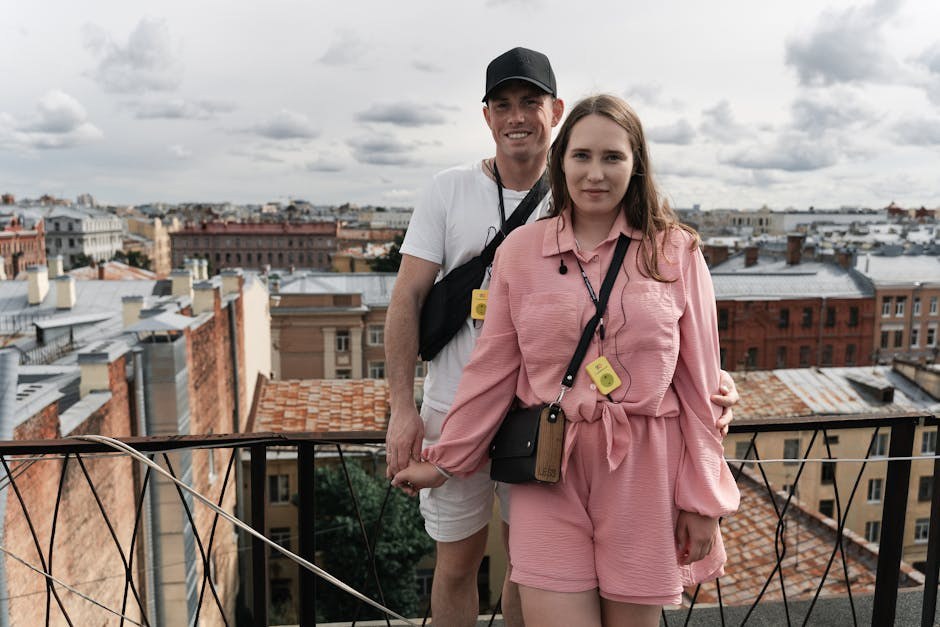You started with light expectations and easy chemistry, not labels or timelines. That’s the charm of a casual relationship – until it isn’t anymore. When your wants shift or the dynamic stops feeling good, ending it can feel oddly complicated. You weren’t “official,” yet there are real feelings, routines, and boundaries to unravel. This guide walks you through a respectful, low-drama way to close a casual relationship, from getting clear with yourself to having the conversation, and then caring for your wellbeing afterward.
Before you bow out: get clear on what you truly want
Ending a casual relationship is simplest when your inner compass points in one direction. That clarity rarely arrives on its own – you cultivate it by telling yourself the truth. If you’ve been explaining away discomfort or hoping it will “sort itself out,” pause and switch perspectives. Imagine you’re your own best friend giving advice. What patterns would you notice if the casual relationship belonged to someone you love? What would you gently suggest they do next?
Write it down. There’s power in ink meeting paper – it slows you long enough to notice what actually matters. Make two short lists: what you appreciate about this casual relationship, and what consistently drains you. Do the same for the person involved. Keep your notes concrete: “I feel relaxed after we hang out” versus “I guess it’s fine,” or “I’m anxious when I don’t hear back for days.” The more specific you are, the easier it becomes to see whether continuing a casual relationship aligns with your needs.

Check in with your body as well as your thoughts. How do you feel before a meetup – energized, neutral, tense? How do you feel the morning after – content, conflicted, flat? Your nervous system keeps score even when your brain tries to negotiate. If the casual relationship repeatedly leaves you unsettled, that feedback matters.
Finally, name your goal in plain language. Maybe you’re seeking deeper commitment, or maybe you simply want emotional quiet. Either way, clarity reduces drama. When you know why you’re leaving a casual relationship, you can explain it kindly and firmly – without over-justifying or drifting into mixed messages.
A step-by-step way to end a casual relationship respectfully
You don’t need a grand speech or a heavy “state of us” summit. You do need courage, kindness, and a plan. Use the following sequence to keep things clear and compassionate.

-
Speak the truth – simply and kindly
Resist the temptation to invent a convenient excuse. “I’m too busy,” “Work is wild,” or “I’m stepping back from dating” can sound hollow and invite follow-ups. Say what’s real about the casual relationship: you’re not feeling a fit, your needs have changed, or you’re looking for something different. Short is strong. Direct is gentle when your words are considerate. You can say it plainly – with kindness – and stop there.
-
Choose an in-person or voice conversation
Text is efficient; closure is considerate. If safety and logistics allow, meet briefly for coffee or talk by phone. Tone, pauses, and human presence reduce misunderstandings that often flare in a casual relationship when messages are clipped or delayed. A few honest sentences delivered calmly will do more than a long text thread ever could.
-
Do not ghost
Silence can feel easier in the moment, but it lands as confusion and disrespect. A casual relationship still deserves a clear ending. Offer that clarity. You don’t owe a lengthy debrief – you owe a simple, direct goodbye that lets both of you move forward.

-
Stop blurring boundaries with intimacy
If you’ve decided to end things, align your actions. Physical closeness communicates “we’re still connected,” which keeps a casual relationship on life support and can tangle feelings for both people. Press pause on intimacy before you have the talk, and keep that boundary afterward so your message stays consistent.
-
Allow your emotions – without backtracking
Feeling sad, uneasy, or guilty doesn’t mean you’re making the wrong choice. It means you’re human. Let the feelings move through – journal, walk, breathe – and keep the decision. Wavering during the talk often reopens a casual relationship you’ve already outgrown, which just prolongs the discomfort for you both.
-
Avoid mixed signals on social media
After the conversation, be mindful online. Liking intimate photos, dropping flirtatious comments, or replying to late-night stories sends confusing signals and can reignite a casual relationship dynamic you just closed. Keep interactions neutral for a while, or give yourself a quiet break from engaging with their posts.
-
Do not offer instant friendship
“We can still be friends” sounds gentle – and sometimes it’s true later – but right now it often muddies the water. Most people need space for the shift to settle. Let the casual relationship end cleanly. If a genuine friendship makes sense down the road, it will be obvious after time apart.
-
Prepare for any reaction
People process endings differently. Some will shrug and wish you well; others may be sad, blunt, or defensive. Your job is to stay calm, validate their feelings, and restate your boundary once. You can’t manage how someone receives a casual relationship ending – you can only manage how you deliver it.
-
Do it sooner rather than later
There is no perfect moment. Waiting often breeds resentment or leads to accidental mixed messages – another weekend together, another “one last” date. If you know you’re done with the casual relationship, choose the next practical opportunity and keep it brief and warm.
-
Ignore late-night temptation
After you end things, you might feel the pull to text when you’re lonely or turned on. That ping is powerful – and it reopens exactly what you closed. When urge spikes, postpone action: set your phone aside for twenty minutes, drink water, take a quick walk. Your future self will thank you for protecting the boundary around the casual relationship you ended.
-
Consider a transparent reframe – only if both want it
If your hesitation is about labeling rather than connection, you can talk about redefining terms. Be crystal clear, though: say exactly what you’re available for and what you’re not. If your needs diverge, end the casual relationship instead of negotiating a version that leaves either of you uneasy.
Exactly what to say – sample scripts you can adapt
Scripts help when your mind goes blank. Keep them short and sincere, and adjust wording so it sounds like you. Each one communicates care, clarity, and finality for a casual relationship.
- “I’ve enjoyed spending time together, and I’ve realized I’m looking for something different. I don’t want to keep a casual relationship going when my heart’s not in it. Wishing you well.”
- “You’re great company, and I’m not the right fit. I want to be honest rather than keep this casual relationship on autopilot. Thank you for understanding.”
- “I’m going to step back. I’m not available for a casual relationship anymore, and I don’t want to blur lines. Take care.”
Say it once, kindly, and resist the pull to over-explain. Repeating yourself invites debate; simplicity closes the loop.
After the conversation: how to take care of yourself
Even when you’re the one who ended it, there’s an adjustment period. You’re dismantling habits – not just Friday plans, but the reflex to text a particular person when something funny or frustrating happens. The following steps help you land softly as you move on from a casual relationship.
-
Put the ending in perspective
When something familiar ends, our minds can amplify it. Remind yourself what was true: the casual relationship met certain needs for a while, then stopped fitting. That arc is normal. You closed it with care – that matters. If the conversation stayed respectful, trust that you honored both people’s time.
-
Write a brief “what I want next” list
Clarity you gained by ending a casual relationship can guide your future choices. List a few non-negotiables (how you want to feel, how you want to communicate) and a few deal-breakers (patterns you’re not willing to repeat). This isn’t about perfection; it’s about alignment. Keep the list where you can see it when new sparks appear.
-
Reclaim your social energy
Go out with friends who know your story – the ones who make you laugh and remind you who you are outside any casual relationship. Try a new class, wander a market, plan a park picnic. Novelty refreshes your brain and fills the space that the old routine occupied.
-
Use dating apps with intention (or skip them for now)
If you open an app, set your filters and profile to reflect what you actually want. Photos and bios cue others how to approach; choose ones that support your goals. If your energy feels thin, take a break. There’s no rush to replace a casual relationship – you’re allowed to rest between chapters.
-
Take a short dating pause if you need one
Quiet seasons recalibrate your attention. Cook for yourself, sleep well, move your body. Make plans that have nothing to do with romance. The steadier you feel on your own, the easier it is to spot when a new casual relationship would be a detour rather than a delight.
-
Talk it through with trusted people
Share with friends or a counselor if heavy feelings linger. Saying things out loud helps your nervous system relax – it turns a swirling thought into a complete story. Let supportive people remind you why ending the casual relationship made sense for you.
-
Leave room for the right connection
When your calendar and headspace aren’t occupied by a casual relationship that doesn’t fit, you create the conditions to notice someone who does. That someone might be another person – or it might be a deeper connection with your own life. Either path is worth the space you’ve made.
Practical guardrails to keep things clean afterward
Endings stay clean when your daily choices back them up. Think of these as gentle guardrails that support the boundary you set around the casual relationship you closed.
- Short-term silence helps long-term peace. A brief no-contact window after ending a casual relationship – even just a couple of weeks – can calm second-guessing and reduce impulsive texts.
- Mind your “gateway” habits. Rewatching old stories, scrolling photos, or revisiting favorite songs associated with the casual relationship can trigger nostalgia that feels like a sign. It’s usually just memory doing its job. Choose inputs that steady you.
- Honor their boundary, too. If they don’t respond right away or ask for space, respect it. Mutual respect is the quiet hero of a drama-free ending.
- Watch your language about yourself. Ending a casual relationship isn’t “failing” at love – it’s choosing alignment. Speak about it that way when you narrate your experience to others.
If you’re tempted to renegotiate, ask these questions first
Sometimes, after a few days or weeks, you might consider reopening contact. Before you reach out, check your motive. Are you lonely tonight, or are you genuinely interested in building something different from a casual relationship? Are you hoping they’ve changed, or do you have new clarity about what you can offer? If your answers lean on wishful thinking, give it more time. If both of you want the same structure and are willing to communicate consistently, only then consider a new start with fresh boundaries – otherwise, let the ending stand.
A gentler way to think about endings
When you leave a casual relationship, you’re not disowning the good moments. You’re acknowledging that a chapter served you for a time and then stopped making sense. That realization is evidence of growth, not coldness. Treat the ending as an act of care – for yourself and for the other person – and then practice living into the quiet that follows. In that quiet, your next right thing usually announces itself – not loudly, but clearly.
Putting it all together
Be honest with yourself, then be honest with them. Have a brief, kind conversation. Avoid ghosting, end intimacy, and hold your boundary when nostalgia or desire tries to rewrite the plan. Afterward, give yourself perspective, community, and rest. The result is a clean close to a casual relationship that once made sense – and the renewed capacity to notice what truly fits you now.